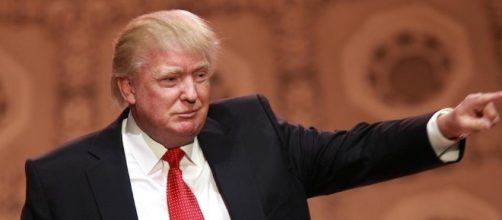Rhetoric is something that all politicians use and engage with. It is used to make a statement, to prepare somebody or simply to deter others from doing something. But how does it compare with reality and the need to govern or to make changes for the better? Let us investigate.
The US
There are numerous examples of individuals or even nation-states using rhetoric to their advantage. One key example is that of US President Donald Trump. As reported by the BBC, Trump made a number of promises in his election campaign. He promised to "repeal and replace Obamacare".
He claimed that he would "build a wall along the US-Mexican border", which "Mexico would pay for it". He called NAFTA a "disaster", and would ban "all Muslims entering the US". He said himself that it would be a "total and complete" shutdown. He stated that he wanted to leave NATO, calling it "obsolete" and pledged to call China a "currency manipulator". There was also the call to move the US embassy in Tel Aviv to its capital, Jerusalem.
North Korea and Iran
There are other examples too. North Korea for one continually uses words or statements to deter others and to make a point. As the United States have stepped up their criticism of North Korea, the so called 'rogue state' has responded that, as reported in the Telegraph newspaper, that there will be an "imminent" war against the US if provoked.
Furthermore, North Korea's deputy UN ambassador stated in response to US attempts to impose military threats and sanctions as a "wild dream". Even last year, in the face of pressure, North Korea threatened to launch an "all-out offensive and "indiscriminate nuclear strike" against the US and South Korea as a result, according to the CNBC website. A further example can be found in Iran too. As the Independent reported, not only did its Supreme Leader claim that "the Zionist regime will not be in existence in 25 years" but that the Israeli government was a "cancerous tumor" that should be confronted.
The difference in office
However, what is truly clear is the immense difference between saying something and actually doing it.
Let us look at Donald Trump again as our key example. He wanted to build the wall with Mexico paying for it but now stated that the US will have to "pay up front" and find a solution later. He opposed NATO but now says "it's no longer obsolete". He promised action on China as a currency manipulator but then conceded China in actual fact have not been "currency manipulators". He wanted to remove Obamacare but after widespread criticism had to back down. He pledged to move the US embassy to Jerusalem but has now cooled that idea. What is clear is the difference between being on the outside and being on the inside. I understand his desire to make a noise, to ruffle feathers and to gain support.
He promised a lot which resonated with a lot of voters but his lack of political experience seems to be shining through. Did he not realise or anticipate the structures of American politics. The partisan nature of Congress, the need to please all parties and the public and to do good that is in the national interest. He is learning as he goes along and that worries me. It is very difficult for a right-wing leader to succeed on right-wing policies. We live in a time where compromise and moderation are the key.
The reality
It is not doubt that rhetoric is important. It is used by the likes of North Korea and Iran to deter, to show off their strength and to be seen as handling the pressure from around them.
Iran has been doing this to Israel for years. But as I stated, which also concerns North Korea, the difference between saying something and actually doing it are two very different things. Despite the provocative missile testing by North Korea, I truly believe that neither they nor Iran actually want a war. Nobody does. But in threatening war if provoked sends out a message to those who threaten them. Words can be powerful, but it is all about taking action instead.

